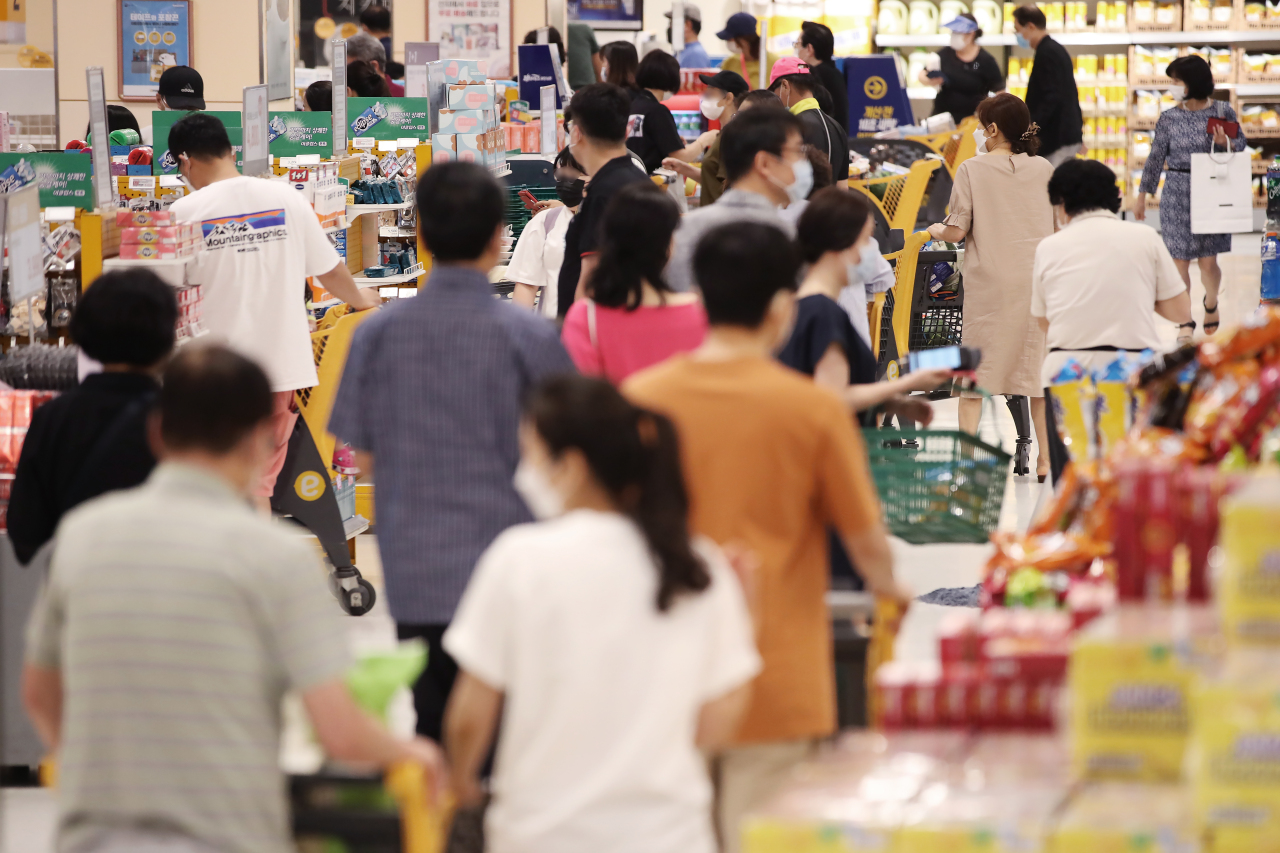Consumption shows signs of rebound, but export slump continues: finance ministry
By YonhapPublished : July 17, 2020 - 10:08

South Korea's finance ministry said Friday that local consumption showed signs of a rebound, but the coronavirus pandemic continued to stagnate exports.
In a monthly report, called the Green Book, the Ministry of Economy and Finance painted a somewhat positive picture of the economy, compared with its June report.
"Domestic consumption showed signs of improvement and job losses have narrowed, but declines in exports and industrial output continued as COVID-19 weakened global demand," the report said.
"Worries about global economic recession are growing as risks increase in major economies," it said.
South Korea lost about 352,000 jobs in June, marking the fourth consecutive monthly decline in the number of employed people as the pandemic hammers job markets.
The pace of job losses has slowed since April. The nation shed 476,000 jobs in April and 392,000 jobs in May.
Consumer sentiment continued to rebound to a four-month high in June. The composite consumer sentiment index came to 81.8 in the month, up 4.2 points from a month earlier, according to the Bank of Korea.
However, exports dropped for the fourth consecutive month in June as overseas shipments collapsed, highlighting a drop in global trade volume and cross-border restrictions.
Earlier this month, the National Assembly approved a third extra budget of 35.1 trillion won ($29 billion) to help cushion the economic fallout from the pandemic.
Vice Finance Minister Kim Yong-beom said the budget will provide a total of 575,000 jobs in both the public and private sectors.
The Organization for Economic Cooperation and Development (OECD) has predicted that South Korea's economy could shrink 1.2 percent this year as the global economy is expected to have its worst year since the Great Depression of the 1930s due to the pandemic.
The world economy is expected to contract 6 percent this year, the OECD said. (Yonhap)








![[Kim Seong-kon] Democracy and the future of South Korea](http://res.heraldm.com/phpwas/restmb_idxmake.php?idx=644&simg=/content/image/2024/04/16/20240416050802_0.jpg&u=)








![[KH Explains] Hyundai's full hybrid edge to pay off amid slow transition to pure EVs](http://res.heraldm.com/phpwas/restmb_idxmake.php?idx=652&simg=/content/image/2024/04/18/20240418050645_0.jpg&u=20240418181020)

![[Today’s K-pop] Zico drops snippet of collaboration with Jennie](http://res.heraldm.com/phpwas/restmb_idxmake.php?idx=642&simg=/content/image/2024/04/18/20240418050702_0.jpg&u=)